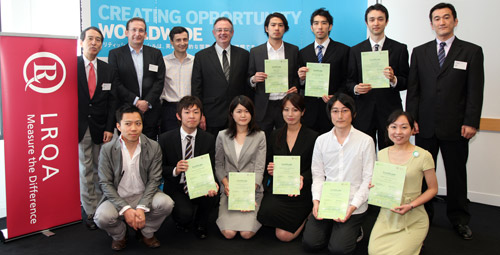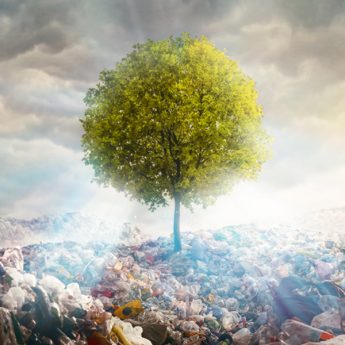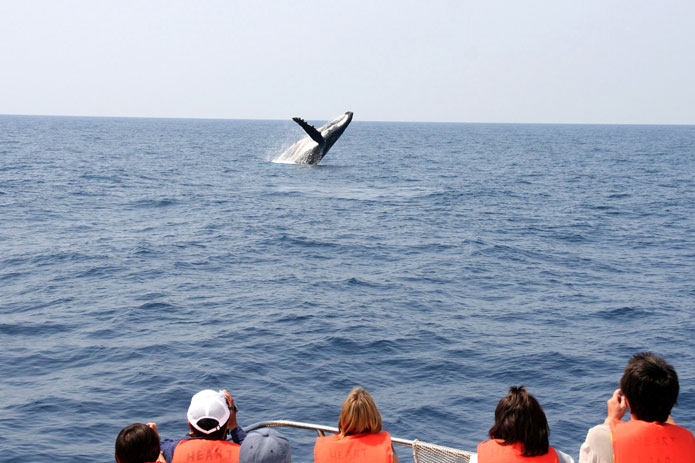E-idea, like all brilliant ideas, is very simple but wonderfully effective. Young entrepreneurs, with strong environmentally focused ideas, submit a proposal into a national competition to be judged by a specialist panel. The winners receive funding, get plugged into a vast global business network, and are then given commercial and marketing mentoring from industry specialists. And, best of all, the world gets a great project that will make the planet a better, greener place.
Conceived and sponsored in 2009 by Lloyd’s Register Quality Assurance (LRQA) and the British Council, E-idea first ran in Japan in 2010. And it was very successful. Two 2010 winners were Funfam, a business that makes and promotes bamboo tableware as a stylish, sustainable and non-fossil fuel renewable resource; and the Energy Literacy Platform that monitors the energy consumption of domestic electronic appliances. Both programmes are now successfully in the market, have received widespread media coverage and, their creators say, have been improved immensely because of the influence E-idea has had on them.
This initial success means that in 2011, a regional E-idea programme will be run in seven Asia-Pacific countries. E-idea 2011 was launched in Japan, Vietnam and Australia in April (in Australia it is called Big Green Idea) and will run in China, Indonesia, South Korea, Thailand and Vietnam in May.
For LRQA, it is an exceedingly good fit.
LRQA is an important and integral part of the Lloyd’s Register Group. Lloyd’s Register invests time, money and resources to fulfil its charitable mission: to enhance the safety of life, property and the environment at land, sea and in the air.
Since 1760, safety has been at the heart of the group’s work. Lloyd’s Register provides independent assurance to firms operating high-risk, capital-intensive assets in the energy and transportation sectors. In these areas, the cost of mistakes can be very high, both financially and in terms of the impact on local communities and the environment.
Lloyd’s Register Group is one of the world leaders in assessing business processes and products to internationally recognised standards, and for LRQA this means managing business systems and risks to help improve and protect an organisation’s current and future performance. In Japan, LRQA is an industry leader in providing training and certification for quality-management systems (ISO 9001), environmental-management systems (ISO 14001), and occupational-health and safety-management systems (ISO 18001). Increasingly, LRQA is also deploying the specialist skills and knowledge of its 250 Yokohama- and Kobe-based assessors—and 2,000 people globally—within the environmental space.
LRQA is a leader, in Japan and worldwide, in implementing ISO 50001, which provides organisations with a standardised international framework for integrating energy efficiency into their management and operational practices.
In Europe, LRQA is providing support and guidance to members of the aviation industry that are working to comply with the EU’s 2009 Emissions Trading Scheme. Under the scheme, the European Commission requires aircraft operators to monitor and report verified data on CO2 emissions arising from aviation activities covered by the scheme on both intra-EU flights and all flights entering and departing from EU airports.
With corporate social responsibility (CSR), LRQA is providing an industry leading range of verification services that are designed to help organisations make the most of their CSR agendas in order to best demonstrate their responsible business credentials to stakeholders.
AA1000AS is an international sustainability assurance standard that can be linked to other prominent business audit and assurance standards. Sustainability assurance provides a comprehensive way of holding an organisation to account for its management, performance and reporting on sustainability issues.
SA8000, developed by Social Accountability International, supports the independent certification process and provides the basis for a comprehensive and widely accepted approach for assuring fair and humane workplaces. Importantly, it brings a management systems-based approach to the managing of social and ethical issues.

E-idea 2010 winners with Simon Batters, vice president of LRQA Japan & Korea (back row, fourth from left).
In Japan, LRQA is also taking the industry lead by providing independent validation and verification services to academic, financial, commercial and industrial organisations attempting to conform to the Tokyo Metropolitan Government’s Emissions Trading Scheme (ETS), by verifying that reported greenhouse gas emissions are accurate.
The scheme, the world’s first urban cap-and-trade programme to cover office buildings in emissions-reduction targets, is mandatory and will eventually cover some 1,400 offices, commercial buildings and factories that annually consume more than 1,500 kl of energy. The government of Tokyo, home to nearly 13 million people, aims to slash these emissions by 25% by 2020 (from year 2000 levels) and LRQA became one of the first verification bodies to achieve full certification for all seven categories of the Tokyo-ETS scheme, including as a top-level verification body.
Some of the organisations that have signed up with LRQA include Bank of Japan, Suntory Holdings Limited, Panasonic Corporation, NTT DoCoMo, Inc., All Nippon Airways, Aoyama Gakuin University, Shibaura Industrial University, Hosei University, and the Tokyo University of Agriculture and Technology.
The Japanese Domestic Verification Scheme (J-VER), that gives carbon credits for the removal or reduction of domestic greenhouse gases, is another environmental area where LRQA’s verification and certification skills are being well utilised.
These schemes are putting LRQA and the Lloyd’s Register Group in the heart of the environmental and sustainability marketplace—which, of course, will only benefit the winners of the E-idea competition.
In each country where it is running, the competition will be open to start-up ventures as well as step-up expansions of existing projects. Across the board, however, the winners will be those that focus on real-life sustainability challenges; to win, projects have to clearly address some of the biggest environmental challenges facing local urban communities. These include waste reduction and efficiency, environmental transport and travel, energy reduction, water efficiency and sustainable design.
This year’s regional competition was formally announced at the Sydney Opera House in January by UK Secretary of State for Foreign and Commonwealth Affairs William Hague, who “applauded all involved, particularly the British Council and LRQA for their involvement”. He described E-idea as “addressing one of the central problems in world affairs and calls for people’s ingenuity and entrepreneurship in doing so. I hope many, many people are going to take part”.
In Japan, there are three start-up awards worth ¥400,000 each and three in the step-up awards (for existing projects) worth ¥600,000 each. The competition, which closes on 3 July, is unique, powerful and has the capacity to help change our planet for the better.
For more information or to enter:
www.e-idea.org
www.lrqa.or.jp.
Or email Simon Batters
simon.batters@lrqa.com





